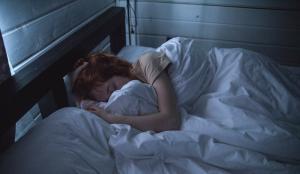Locquiophobia: characteristics, symptoms, causes and treatment
Pregnancy and the moment of childbirth in women are biological and natural processes. However, it is normal that sometimes they cause some respect or fear, especially at the time of delivery. When this fear, however, becomes intense and disproportionate, we speak of a specific phobia: locchiophobia.
In this article we will learn what exactly this phobia consists of, what other fears it is related to, what two types exist and what repercussions it has. Finally, we will talk about its symptoms, causes and possible treatments.
- Related article: "Types of Phobias: Exploring Fear Disorders"
Locquiophobia: what is it?
Etymologically, the word “locquiophobia” comes from the Greek term “tokos”, which means “birth”, and the term “phobos”, which means “fear”.
Locquiophobia, also called tocophobia, is a type of specific phobia that consists of the intense fear of giving birth or giving birth; This phobia translates into a fear or anxiety associated with the moment of giving birth to a baby naturally, and is related to the fear of pain (especially in new mothers) and with the fear of complications (especially in mothers who have had previous traumatic experiences during the Birth).
It is also related to the fear that the baby will suffer or be born with some malformation, although in locchiophobia the fear itself is directed especially at the "moment of giving birth". On the other hand, locquiophobia can be accentuated at times close to childbirth.
To prevent or treat locchiophobia many times it is resorted to scheduling the delivery in advance and by means of a cesarean section.
Remember that specific phobias are anxiety disorders (classified as such in the DSM-5 [Diagnostic Manual of Disorders]. Mental]), and that for this reason the symptoms are closely related to anxious symptoms, including nervousness, irritability, overexcitement, dizziness etc
Symptoms
Let's see what the symptoms of locquiophobia consist of:
1. Intense fear of giving birth
The main symptom of locquiophobia, as in any specific phobia, consists of the existence of an irrational, intense, persistent and disproportionate fear (or anxiety) of giving birth, which some women who are pregnant or not suffer from (especially those who are not, who avoid becoming pregnant).
2. fear of pregnancy
Sometimes locquiophobia can also include the fear of carrying a baby itself, although it is mainly related to the moment of delivery. The fear many times it translates into nervousness, irritability, anguish, discomfort, fear, etc.
This fear can cover both the gestation period and the period or time of delivery; The mother is afraid that the time to give birth will arrive, and especially afraid of suffering or feeling pain that she cannot bear.
3. Avoidance behaviors
On the other hand, the person with locquiophobia also presents avoidance behaviors, in this case of situations that remind them of the moment of delivery (if they already pregnant) or situations, people, or objects related to the possibility of becoming pregnant (such as seeing other women pregnant).
4. altered functioning
The global symptomatology of locchiophobia (especially intense fear) must last a minimum of 6 months in order to be diagnosed as such, and the affected person's daily functioning must be significantly altered (due to the symptoms).
5. other symptoms
Other symptoms associated with locquiophobia are the appearance of nightmares, depressive symptoms, heightened anxiety, difficulties concentrating or thinking, nausea, and even panic attacks. It is very important to prevent and treat these symptoms to avoid that the baby (in case it is already developing) also suffers.
- You may be interested in: "Types of Anxiety Disorders and their characteristics"
Guys
There are two types of locquiophobia: primary and secondary.
1. Primary
Primary locchiophobia is that suffered by first-time women, who have never given birth before.
Typically these women, if they are not pregnant, want to have children, but the moment of delivery scares them so much that they delay the moment or simply do not try to get pregnant. In the case of being pregnant, they feel that fear throughout the pregnancy and especially in the last stages of it.
2. Secondary
The second type of locquiophobia is secondary. These are women who are no longer new, that is, who have already had children, and who had a traumatic experience during childbirth (due to complications, problems, etc.). This bad experience caused them a kind of trauma, in addition to possible painful symptoms, and that is why they fear going through the same thing again.
So, generally these women fear getting pregnant again and therefore avoid it, although locquiophobia can also arise in women who are pregnant again and who have already had children (this being the second rarest case).
Effects on quality of life
Generally, women who suffer from locquiophobia end up choosing the vital option of not having children (at least conceiving a child naturally).
This decision based on a limitation can affect your affective and sentimental terrain (in couple relationships), if their partners want to have children and they don't. It may also happen that these women resort to other alternatives, such as adoption, in order to avoid the process of pregnancy and/or childbirth.
Causes
The causes of locquiophobia can be diverse. As we have already advanced, one of the most common is a previous traumatic experience that occurred at the time of giving birth (in non-new mothers). This experience may have included complications for the baby or for the mother herself, malformations in the baby, excruciating pain at the time of delivery, etc. It is the most common cause of secondary locchiophobia.
However, locquiophobia can also arise from observing other mothers suffering during pregnancy or at the time of delivery, from hearing traumatic stories from other women, for example (vicarious learning).
It may also be related to myths and legends associated with the moment of childbirth, which have just causing in the person who suffers from the phobia, erroneous or distorted beliefs at the moment of giving to light.
Treatment
The treatment of locquiophobia, in women who are already pregnant, consists of scheduling a cesarean delivery well in advance so that the woman feels calm and safe. However, Prior to this, you can also resort to psychological therapy, through restructuring techniques, which allow to eliminate the erroneous beliefs related to the moment of giving birth.
These techniques (together with the cognitive therapy itself) will also allow the woman to learn to listen to her fears and understand where they come from and what they are based on.
It will be sought that the patient ends up replacing her dysfunctional thoughts with other more positive and realistic ones.. In addition, it will be important to accompany the woman so that she can conceive the moment of childbirth as a natural process that, in In case of complications, she will be able to have medical professionals and the adequate resources to solve any possible problem.
As for possible pharmacological treatments, anxiolytics and/or antidepressants may be used (which help alleviate existing anxiety and possible comorbid depressive symptoms) as long as this does not affect the health of the baby, and exclusively under the medical prescription of a professional.
Bibliographic references:
- American Psychiatric Association (APA) (2014). DSM-5. Diagnostic and Statistical Manual of Mental Disorders. Madrid. Pan American.
- Belloch, A., Sandin, B. and Ramos, F. (2010). Manual of Psychopathology. Volume I and II. Madrid: McGraw-Hill.
- Medina, v. (2018). Have you heard of tocophobia or fear of giving birth? Deep fear of the pregnant woman at the time of delivery. Guíainfantil.com.



